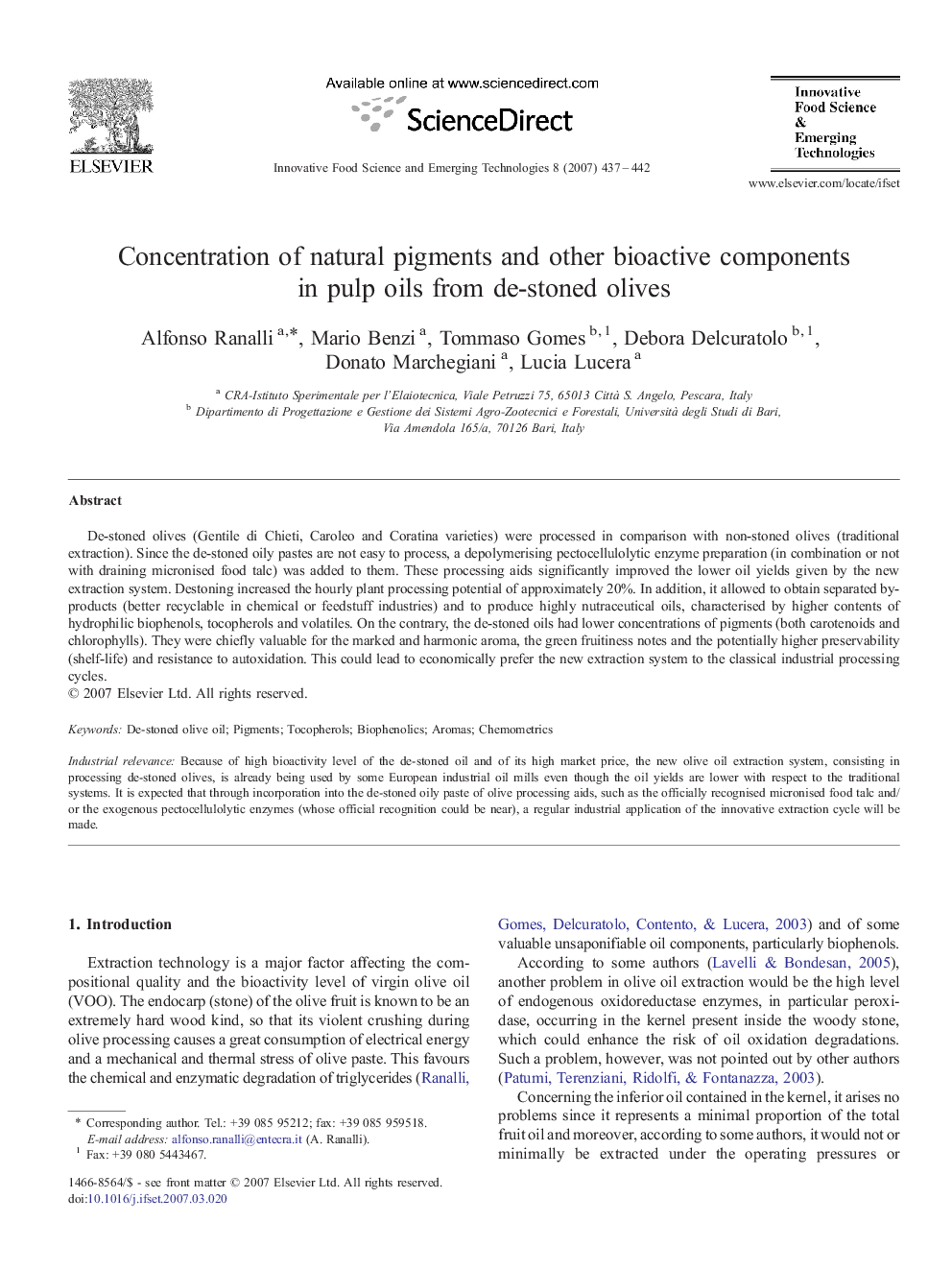| Article ID | Journal | Published Year | Pages | File Type |
|---|---|---|---|---|
| 2087513 | Innovative Food Science & Emerging Technologies | 2007 | 6 Pages |
De-stoned olives (Gentile di Chieti, Caroleo and Coratina varieties) were processed in comparison with non-stoned olives (traditional extraction). Since the de-stoned oily pastes are not easy to process, a depolymerising pectocellulolytic enzyme preparation (in combination or not with draining micronised food talc) was added to them. These processing aids significantly improved the lower oil yields given by the new extraction system. Destoning increased the hourly plant processing potential of approximately 20%. In addition, it allowed to obtain separated by-products (better recyclable in chemical or feedstuff industries) and to produce highly nutraceutical oils, characterised by higher contents of hydrophilic biophenols, tocopherols and volatiles. On the contrary, the de-stoned oils had lower concentrations of pigments (both carotenoids and chlorophylls). They were chiefly valuable for the marked and harmonic aroma, the green fruitiness notes and the potentially higher preservability (shelf-life) and resistance to autoxidation. This could lead to economically prefer the new extraction system to the classical industrial processing cycles.Industrial relevanceBecause of high bioactivity level of the de-stoned oil and of its high market price, the new olive oil extraction system, consisting in processing de-stoned olives, is already being used by some European industrial oil mills even though the oil yields are lower with respect to the traditional systems. It is expected that through incorporation into the de-stoned oily paste of olive processing aids, such as the officially recognised micronised food talc and/or the exogenous pectocellulolytic enzymes (whose official recognition could be near), a regular industrial application of the innovative extraction cycle will be made.
